- Introduction to Saas Courses
- 1. SaaS Marketing: SaaS Startup Lead Generation Lean Startup by Udemy
- 2. SaaS Metrics Fundamentals for Managers, Founders & Investors by Udemy
- 3. SaaS Masterclass: Sales, Marketing and Growth Metrics by Udemy
- 4. How to Startup Your Own SaaS (Software As a Service) Company by Udemy
- 5. Master SaaS Marketing for Software Products by Udemy
- 6. SaaS Masterclass | SaaS Business Model explained by Udemy (Free)
- 7. Create the ultimate SAAS system with Bubble and Stripe by Udemy (Free)
Introduction to Saas Courses
Boost your skills with our easy-to-follow SaaS courses. Whether you’re just starting or have experience, we cover everything about Software as a Service. Learn from experts, stay ahead in your career, and succeed in the digital world. Perfect for engineers, entrepreneurs, or professionals. Enroll today for a brighter SaaS career.
1. SaaS Marketing: SaaS Startup Lead Generation Lean Startup by Udemy
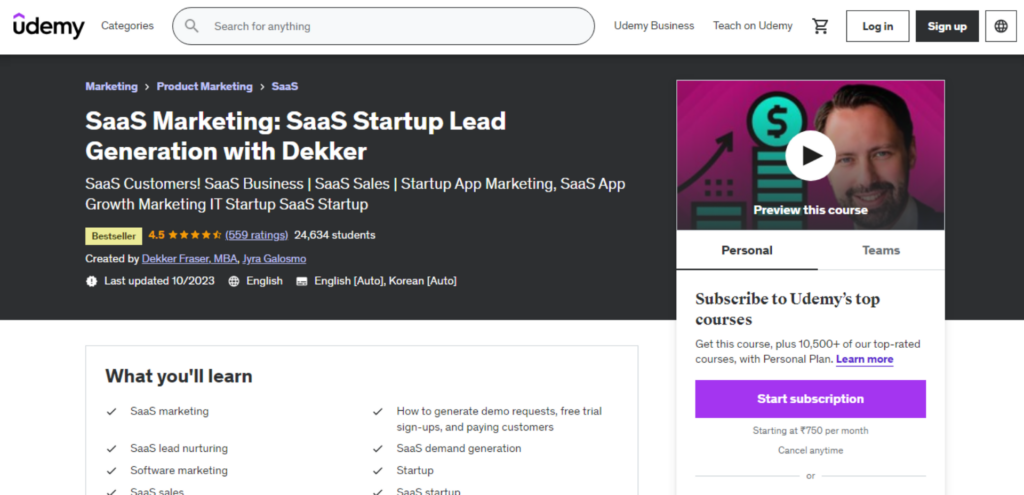
This course is created for SaaS clients! Learn about SaaS business, deals, and marketing for startup apps and IT startups.
SaaS Marketing: SaaS Startup Lead Generation Lean Startup
Click Here to Know more and Register to this course.
2. SaaS Metrics Fundamentals for Managers, Founders & Investors by Udemy
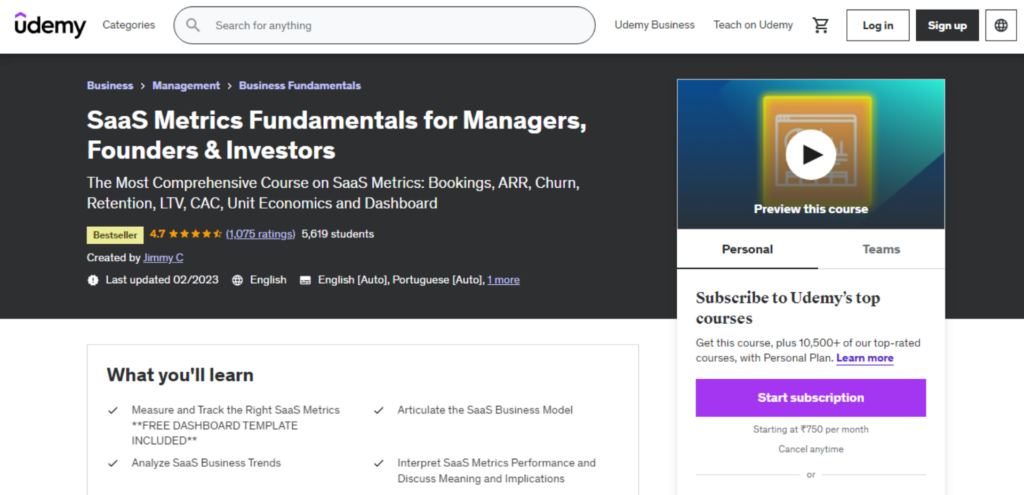
The Most Comprehensive SaaS Measurements Course helps you to know Bookings, ARR, Churn, Maintenance, LTV, CAC, Unit Financial Matters, and Dashboard.
SaaS Metrics Fundamentals for Managers, Founders & Investors
Click Here to Know more and Register to this course.
3. SaaS Masterclass: Sales, Marketing and Growth Metrics by Udemy
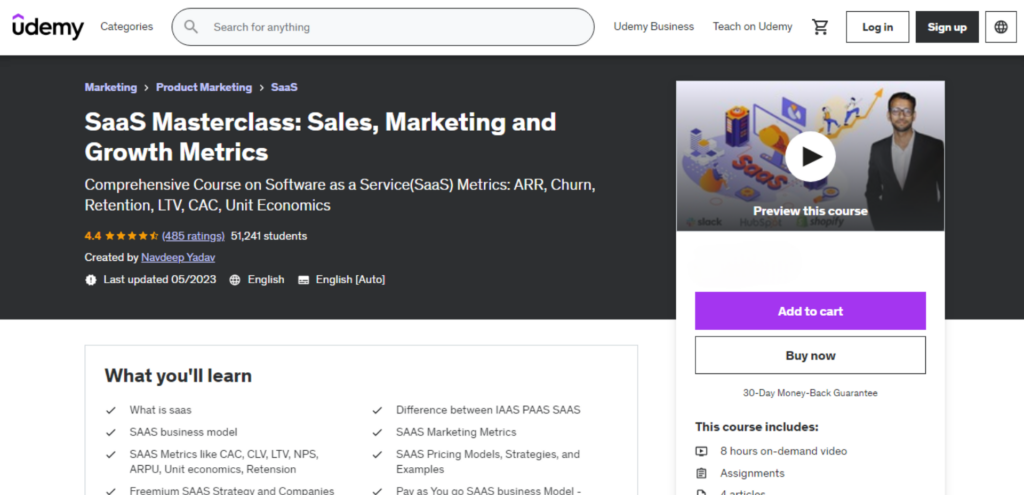
This course is a comprehensive course on Computer program as a Service(SaaS) Measurements: ARR, Churn, Maintenance, LTV, CAC, Unit Economics.
SaaS Masterclass: Sales, Marketing and Growth Metrics
Click Here to Know more and Register to this course.
4. How to Startup Your Own SaaS (Software As a Service) Company by Udemy
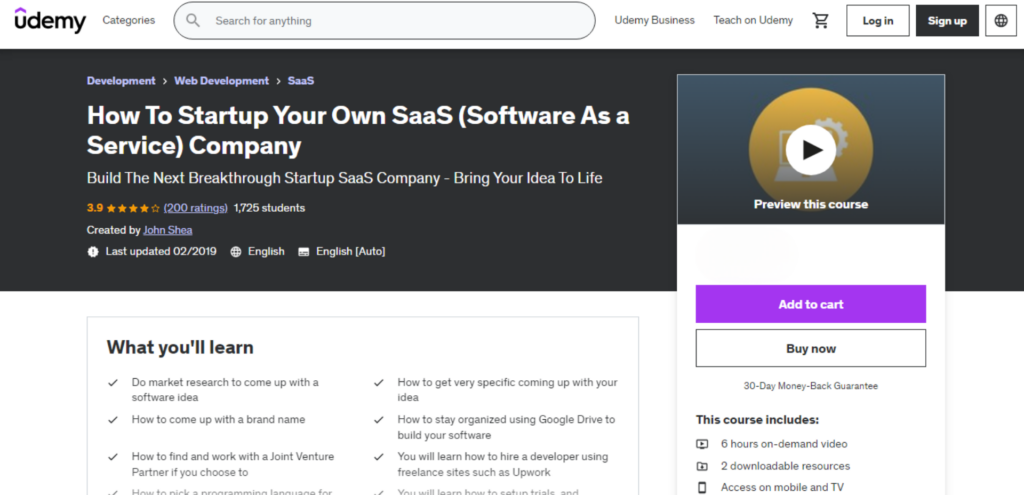
This course is made to: Build The Next Breakthrough Startup SaaS Company – Bring Your Idea To Life.
How to Startup Your Own SaaS (Software as a Service) Company
Click Here to Know more and Register to this course.
5. Master SaaS Marketing for Software Products by Udemy
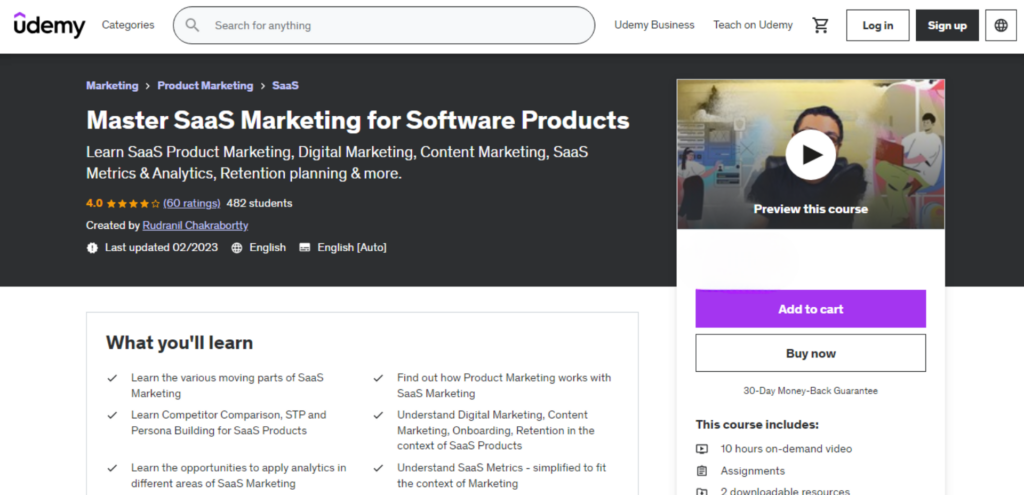
This course is created to: Learn SaaS Product Marketing, Digital Marketing, Content Marketing, SaaS Metrics & Analytics, Retention planning & more.
Master SaaS Marketing for Software Products
Click Here to Know more and Register to this course.
6. SaaS Masterclass | SaaS Business Model explained by Udemy (Free)
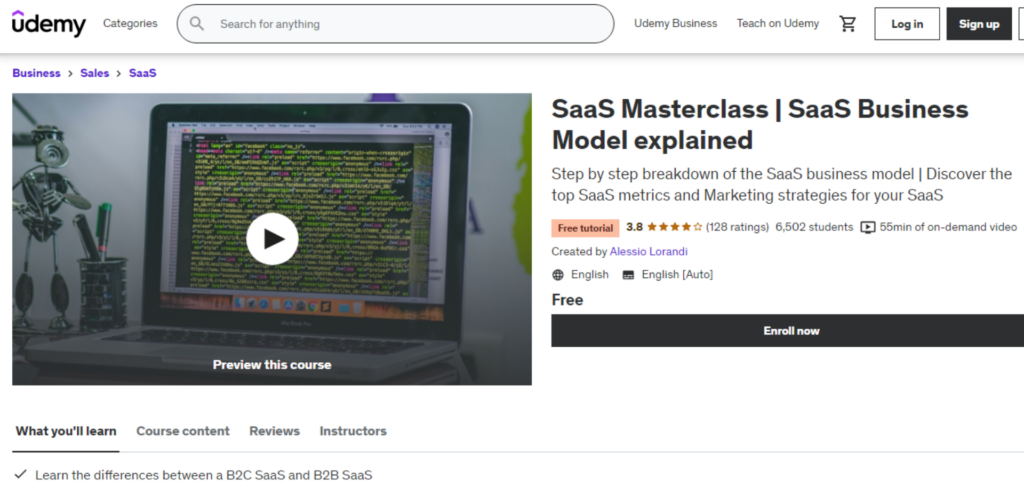
Step by step breakdown of the SaaS business model | Discover the top SaaS metrics and Marketing strategies for your SaaS.
SaaS Masterclass | SaaS Business Model explained
Click Here to Know more and Register to this course.
7. Create the ultimate SAAS system with Bubble and Stripe by Udemy (Free)
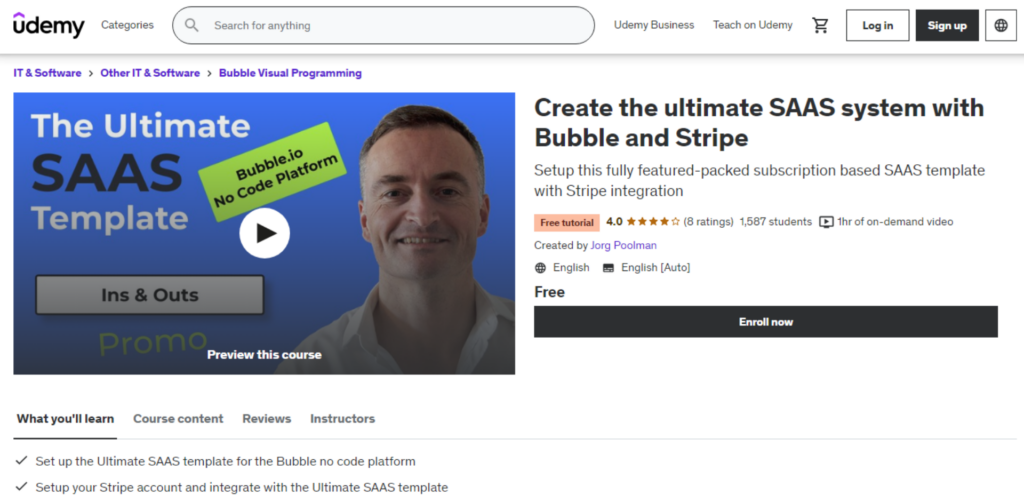
Configure this feature-rich subscription-based SAAS template with Stripe integration.
Create the ultimate SAAS system with Bubble and Stripe
Click Here to Know more and Register to this course.
FAQ’s
1.What is SaaS?
SaaS stands for Software as a Service. It is a software distribution model where applications are hosted by a service provider and made available to customers over the internet.
2.How is SaaS different from traditional software?
Unlike traditional software, SaaS does not require installation or downloads. Users can access SaaS applications through a web browser, making it convenient and easily accessible.
3.Is SaaS secure for storing sensitive data?
Yes, SaaS providers invest in advanced security measures to protect user data. However, it’s essential to choose a reputable provider and follow best practices to ensure the security of sensitive information.
4.Can I customize SaaS applications for my business needs?
Many SaaS providers offer customization options, allowing businesses to tailor the software to their specific requirements. However, the extent of customization may vary, so it’s essential to check with the provider.
5.How does SaaS pricing work?
SaaS pricing models vary, including monthly subscriptions or usage-based fees. Businesses typically pay for the features and services they need, making it scalable and cost-effective for both small startups and large enterprises.